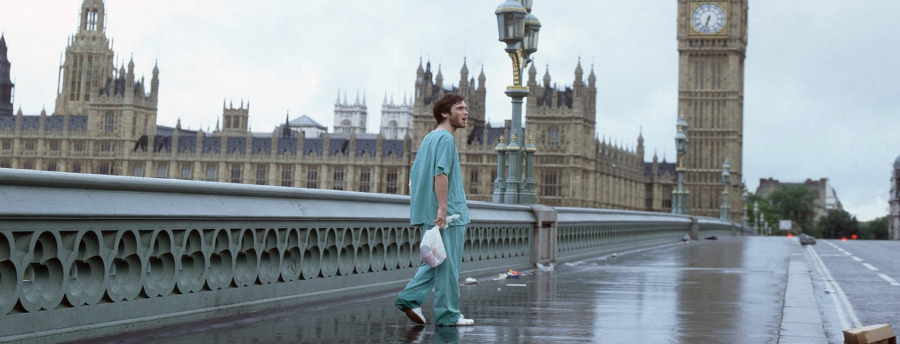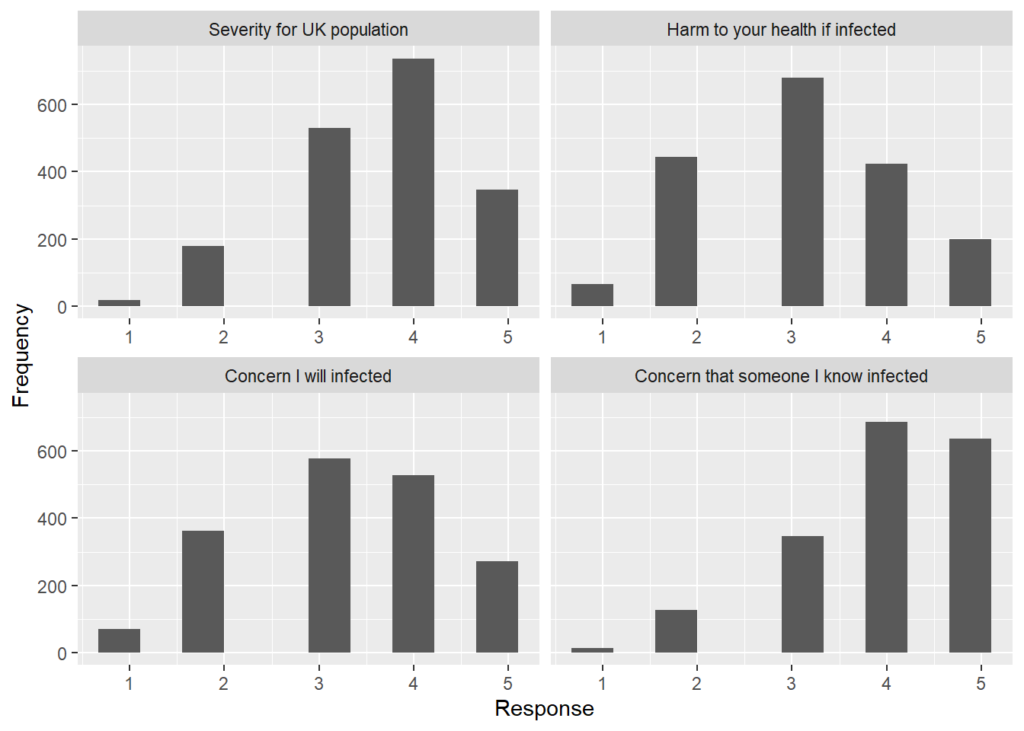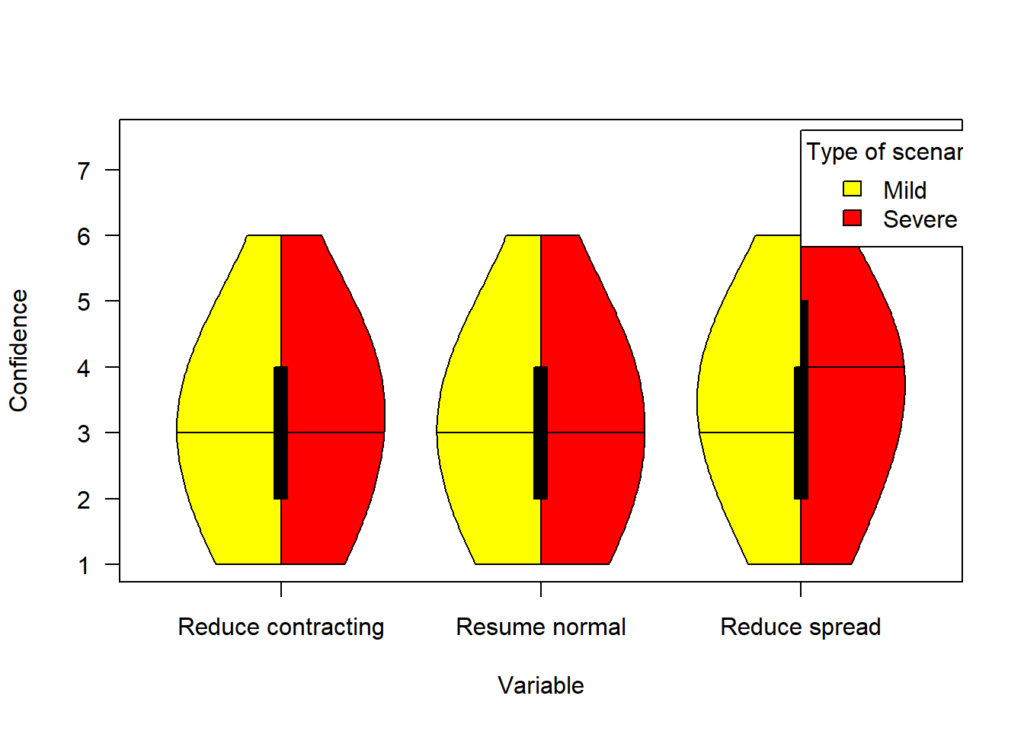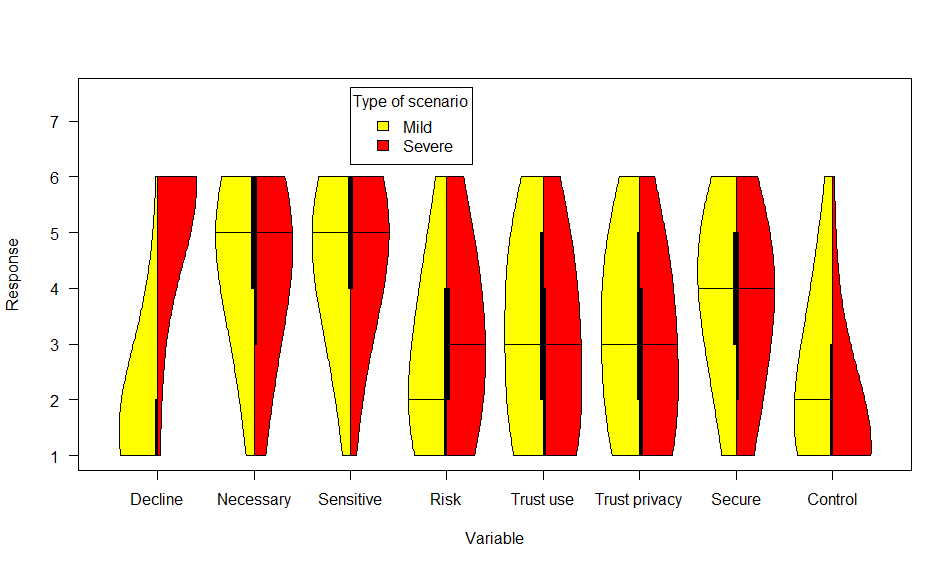Coronavirus aka COVID-19 aka severe acute respiratory syndrome coronavirus 2 (SARS-CoV-2) is the cause of the current pandemic that has turned our world upside down. This virus does not discriminate between who will be infected nor who will succumb to it. At the time of writing this blog, there are approximately 1.5 million cases, over 80,000 deaths, and over 300,000 recovered cases worldwide.
Many of the largest economic powerhouses around the world – China, UK, US, Japan, most European countries – have turned inward and closed their borders to try to manage the global effects. Schools – primary, secondary, and university levels – are closed. Educators are transitioning their traditional courses online. Students, parents, couples, and singles are trying to figure out a new balance work-life balance with the added tasks of “teaching”, “entertaining”, “social distancing”, or “worrying” … so very many worries.
Airplanes are almost empty of passengers yet filled with supplies in transit to places around a country or the world. Highways are busy with trucks, Amazon vans, Fed Ex, UPS, or other delivery vehicles rather than personal vehicles. Rush hour is no longer the bane of anyone’s existence.
Pictures abound on social media of the eerily empty boulevards of Vegas, LA, NYC, Paris, Milan, London (pictured below), Mumbai, Madrid, Buenos Aires … with more cities, states, and countries implementing stay-at-home or shelter-in-place orders each week. All these actions are being performed with the hopes that the “curve will flatten”, the health-care systems will not be overwhelmed, and the number of lives lost will be minimized.

But sooner or later life will have to resume outside the home, and the stay-at-home policies will have been replaced by a new set of policies.
But what are those?
Countries that have managed to “flatten the curve” without rigorous stay-at-home policies (e.g., Singapore), have employed tracking via smartphone apps to mitigate the impact of COVID-19. Tracking allows government agencies to observe who you have been in contact with and when this contact occurred, thereby rapidly implementing appropriate measures to reduce the spread of COVID-19. The effectiveness of collocation tracking relies on the willingness of the population to support such measures. Gaining the social license – broad community acceptance beyond formal legal requirements – for collocation tracking requires the perceived public health benefits to outweigh concerns of personal privacy, security, and any potential risk of harm.
Stephan Lewandowsky at the University of Bristol, and former Psychonomic Society Digital Content Editor, and colleagues developed a study that probed the public’s acceptance of such privacy-encroaching technologies. The study involved a series of questions regarding attitudes and beliefs about perceived risks and threats of COVID-19, participants’ worldviews, and their sources of information about COVID-19. The crucial manipulation was that participants first read one of two, randomly assigned, hypothetical scenarios (shown below) regarding voluntary participation or mandated participation in governmental use of smartphone tracking to manage the outbreak.
| MILD | SEVERE |
|---|---|
| The COVID-19 pandemic has rapidly become a worldwide threat. Containing the virus’ spread is essential to minimise the impact on the healthcare system, the economy, and save many lives. The U.K. Government might consider using smartphone tracking data to identify and contact those who may have been exposed to people with COVID-19. This would help reduce community spread by identifying those most at risk and allowing health services to be appropriately targeted. Only people that downloaded a government app onto their smartphones and agreed to be tracked and contacted would be included in the project. The more people download and use this app, the more effectively the Government would be able to contain the spread of COVID-19. Data would be stored in an encrypted format on a secure server accessible only to the U.K. Government. Data would only be used to contact those who might have been exposed to COVID-19. | The COVID-19 pandemic has rapidly become a worldwide threat. Containing the virus’ spread is essential to minimise the impact on the healthcare system, the economy, and save many lives. The U.K. Government might consider using phone tracking data supplied by telecommunication companies to identify and contact those who may have been exposed to people with COVID-19. This would help reduce community spread by identifying those most at risk and allowing health services to be appropriately targeted. All people using a mobile phone would be included in the project, with no possibility to opt-out. Data would be stored in an encrypted format on a secure server accessible only to the U.K. Government who may use the data to locate people who were violating lockdown orders and enforce them with fines and arrests where necessary. Data would also be used to inform the appropriate public health response and to contact those who might have been exposed to COVID-19, and individual quarantine orders could be made on the basis of this data. |
The pre-registered details are available on the Open Science Framework Registry. Though these data are from UK respondents, this project is part of a global effort, with data having been collected in the U.S., Germany, and Australia already, and numerous other countries in Europe and Asia forthcoming. Those results will trickle in over the next few days and weeks.
More than 1800 participants completed the survey. The sample included slightly more females (51%) than males, with more than 55% reporting having University-level education. So although the sample was intended to be ‘representative’, based on Prolific’s criteria, participants were more educated on average than the British population at large.
The majority of participants had been on lockdown for about 15 days and 83% were still employed. Less than 1% had tested positive for the virus, and 10% knew someone with the virus. TV was the primary source of information, followed by newspapers, and social media.
To probe people’s COVID-19 risk perception, respondents answered the following questions:
| Question | Response Options |
|---|---|
| How severe do you think novel coronavirus will be in the British general population as a whole? | 1 (very mild) to 5 (very severe) |
| How harmful would it be for your health if you were to become infected with coronavirus in the next 12 months? | 1 (not at all harmful) to 5 (very severe) |
| How concerned are you that you might become infected with COVID-19? | 1 (not at all concerned) to 5 (extremely concerned) |
| How concerned are you that somebody you know might become infected with novel coronavirus? | 1 (not at all concerned) to 5 (extremely concerned) |
The figure below shows the number of participants reporting their agreement with various statements regarding COVID-19.

As shown in all of the panels above, the majority of individuals were more likely to agree that they believed the adverse consequences of the novel coronavirus would be severe for the British general population, would be harmful to their health if they became infected, they were concerned about becoming infected, and they were concerned that someone they knew would become infected. Many of these variables were correlated with one another. For example, if participants were concerned about their own health, they were also concerned about others’ health or about harm to their own personal health, if infected.
But, the more interesting findings were what British citizens were broadly willing to support a hypothetical governmental use of smartphone tracking to assess COVID-19 spread and exposure. Remember, the participants were assigned one of two scenarios to assess – would they endorse an optional program in which they would voluntarily download a governmental smartphone app that would track their movements and use it to track the spread and risk of COVID-10 (“mild” scenario), or a government-mandated program in which telecom data would be used to track and locate the spread and risk of COVID-10 that did not have an opt-out (“severe” scenario)?
Participants were asked to report how confident they were that their program would reduce their likelihood of contracting COVID-19, allow them to resume their normal lives more rapidly, and reduce the spread of COVID-19 in the community.
As shown in the figure below, there was very little difference in the distribution of responses (the yellow and the red curves are approximately the same, with the means about equal). The only exception appears that the government-mandated program (severe scenario) elicited higher confidence that the spread of COVID-19 would be reduced.

Participants were also asked how likely they would accept such a program on two different occasions during the study: after immediately reading the scenario and after responding to a series of other questions. Interestingly, there was little difference between the percentage of participants who endorsed either program immediately after reading the scenario; 70% agreed to participate in a voluntary program (mild) and 66% agreed to participate in the mandated program (severe). However, after responding to several other questions regarding the scenario, 69% agreed to participate in the mild program while 64% agreed to participate in the severe program.
When participants who refused a policy (around 30%) were given additional hypothetical information about (1) the data being deleted after 6 months, (2) data being stored on their local device, or (3) given a chance to opt-out of the severe program, more people were willing to participate in either program. With those additional elements, more than 75% of the responding British citizens would accept a smartphone tracking program.
These decisions would obviously be moderated by the perceived degree of risk assessment, trust in the government, and concerns about data security elicited by each scenario. Participants responding to the mild scenario (yellow distributions in the figure below) were less likely to find it difficult to decline to participate, they expressed less risk of harm from the policy and more control of their data than their counterparts in the severe scenario.
Responses did not differ between scenarios for the following questions: all participants were equally likely to agree (or disagree) that the government was collecting necessary data, that the data were sensitive, and that the data were secure. All participants (yellow and red distributions) were also evenly distributed how much trust they had in the government to use the data for the pandemic only and to ensure individual privacy.

A correlational analysis performed across both scenarios found that people were more likely to accept tracking, the more they perceived COVID to constitute a risk. They were less likely to accept tracking, the less they trusted the government with the data.
As described on the website where these results are available, this study provides a contemporary snapshot into the views of British citizens who are in the midst of the pandemic. It seems that many British citizens would be open to having their smartphone data used to either track the spread of COVID-19 to be warned about possible individual exposure or to be identified as having violated individual lock-down in an attempt to stop the spread of COVID-19. Given the access to a variety of publicly available data, if individual identity could be protected, perhaps data such as the smartphone tracking data in the hypothetical scenarios tested, should be utilized to control the spread of COVID-19.
The project is ongoing and additional waves from Britain and around the world will become available in the near future.
